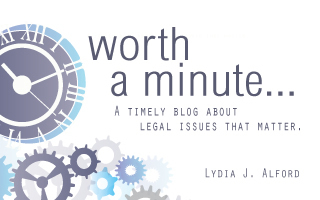Planning for the incapacity and end of life includes consideration of
- powers of attorney,
- living wills,
- practical strategies,
- last will and testament,
- interdiction proceedings (commonly known as guardianship) and
- meaningful discussions with your loved ones about
- Do Not Resuscitate Orders,
- funeral arrangements, and
- quality of life issues.
See our Will and Estate/Probate page for a discussion of the following, among other points of interest
- last will and testament,
- compelling reasons to have a last will and testament and
- how planning can prevent an unnecessary estate administration.
Matters associated with Last Will and Testament: Living Wills and Powers of Attorney
Adults of all ages, wealth and family circumstances or dynamics should carefully evaluate their readiness for life’s events and eventualities.
If you answer “no” to any of the following questions, you may need to consider a living will, healthcare power of attorney and/or general power of attorney.
- Have you taken the necessary steps to make sure your spouse, children or other loved ones are not plunged into a necessitous circumstance due to your death or disability?
- Have you made sure you loved ones know your quality of life beliefs so that they will not forever question whether they honored your life by the end of life decisions they made?
If you answer “yes” to any of the following questions, you, no matter your age, need to resolve whether you have done all you can to prepare for the possibility of your physical or mental disability by having a living will, healthcare power of attorney and/or general power of attorney. Having these documents in place is not for you, but is for your loved ones. You owe it to those you will depend on in case of a disability to make their responsibilities as simple as possible.
- Do you drive a lot?
- Are you engaged in risky activities?
- Do you have a family history of serious illness?
- Have you been recently diagnosed with an illness?
Powers of Attorney. With this document, an individual (the principal) gives to another person (the agent) the authority to act on his or her behalf. The power can be all encompassing or limited, at the principal’s discretion. The principal must have the appropriate mental capacity at the time of execution of the document. The principal retains the right, so long as he or she is of sufficient mental capacity, to revoke a power of attorney at anytime or can state in the power of attorney the date of termination.
There are two types of powers of attorney, general and healthcare.
 Healthcare Powers of Attorney. This document can grant full authority to the agent or be limited in scope. It may authorize the agent to: access medical records, file insurance claims, represent the principal in dealings with government agencies or insurance carriers, discuss and authorize medical treatment with healthcare providers, make medical decisions and/or contract for institutional care.
Healthcare Powers of Attorney. This document can grant full authority to the agent or be limited in scope. It may authorize the agent to: access medical records, file insurance claims, represent the principal in dealings with government agencies or insurance carriers, discuss and authorize medical treatment with healthcare providers, make medical decisions and/or contract for institutional care.Adults in the later stages of life, no matter their wealth and familial circumstances, should carefully evaluate their readiness for life’s events and eventualities. As we age, the risk of mental deficiencies increase. It is too late to sign a power of attorney once a person is incapable of understanding the purposes and provisions of the document.
- It’s not just your well-being you need to consider. How well you have planned for possible medical issues will directly impact your family. Your lack of planning can seriously affect the well-being and quality of life of your loved ones. Don’t take that chance.
- Least of all, don’t procrastinate about the likelihood that you need a healthcare power of attorney, especially in light of the exponentially greater legal costs to your family to gain that authority through the judicial process.
- Don’t assume that your that your insurance company will communicate with your family members. Odds are, outside of an emergency, it will not without your verbal or written consent;
- Don’t procrastinate. Don’t take the chance that there will be time to execute a POA if you get sick. You may have an accident and there won’t be time; you may become ill suddenly and you won’t be mentally capable of signing a POA.
- Just ask caregivers how forever grateful and thankful they were to have the advantage of a healthcare POA.
Ten Reasons YOU Need a Healthcare Power of Attorney
 General Power of Attorney These types of powers of attorney require a great deal of trust. Unless limited by the principal, the general POA grants the agent the authority to the agent to do anything and everything that the principal could do.
General Power of Attorney These types of powers of attorney require a great deal of trust. Unless limited by the principal, the general POA grants the agent the authority to the agent to do anything and everything that the principal could do.
The agent owes a fiduciary duty to act in the principal’s best interest and owes an accounting to the principal or his/her heirs. The agent cannot engage in self-dealing without express consent of the principal.
Whether to execute a power of attorney is purely a personal decision and by necessity places substantial trust in the agent. Some choose to execute a power of attorney as age becomes a factor, others may choose to do so in anticipation of travel, medical procedures or unexpected life events or just for peace of mind.
Living Wills. Living wills allow individuals to give advance directives on the use or withholding of life-sustaining medical treatment, should the individual be unable to make those decisions at the time needed. The document can be tailored to the desires of the individual to withhold treatment or provide full or limited courses of treatment.
Living wills can promote harmony among family members and/or the healthcare providers. It also gives family members the much-needed comfort of knowing that the decisions they make are consistent with the wishes of their loved ones.
Consult with Alford & Alford for a copy and discussion of the form provided by statute and how it can be revised to specifically state the treatment that is or is not allowed.
Practical Strategy. Whether powers of attorney and living wills are executed,  the signer should request that more than one original be executed or obtain multiple true copies, especially if more than one agent is appointed and to account for the loss, destruction or surrender of originals. Recent events indicate that more and more institutions are requiring an original for their files, not copies. In addition, some banks are accepting only their power of attorney forms. So be sure to check with your bank on its POA policies.
the signer should request that more than one original be executed or obtain multiple true copies, especially if more than one agent is appointed and to account for the loss, destruction or surrender of originals. Recent events indicate that more and more institutions are requiring an original for their files, not copies. In addition, some banks are accepting only their power of attorney forms. So be sure to check with your bank on its POA policies.
When requesting quotes on powers of attorney be sure to ask how many originals or copies the quote covers.
Finally, wills, living wills and powers of attorney are very important documents and should be kept in a safe place, such as a bank safe deposit box, or if that is not available in a fire-proof box with the highest burn rating as possible.
Interdiction (Guardianship)
This is a legal proceeding by which a court appoints a curator (guardian) to act on behalf of another individual who is incapable to taking care of his/her own financial affairs or personal well being. An attorney is appointed to interview the proposed interdict. Both the attorney’s report and a report of a doctor must be submitted to the Court.
Medicaid Consultation
Clients consult with Alford & Alford concerning Medicaid funding for nursing home care. Call for an appointment if you or a family member is considering care in a nursing home.
Planning Ahead
Elder law issues require advance planning to achieve optimal benefits. For further guidance on these issues or the benefits of planning ahead, contact Alford & Alford, LLP for a consultation.
Ready to get started? Schedule a consult now.
Pamphlets
- Do I Need A Will?
- What You Should Know About Wills
- What You Should Know About Guardianship, Living Wills, And Powers of Attorney For Older People and Their Families
- Community Property-What is Mine? What is Yours?
- What To Do When a Loved One Dies
- Gathering Your Personal Information & Documents with a Personal Organizer
- What You Should Know About Your Legal Health


